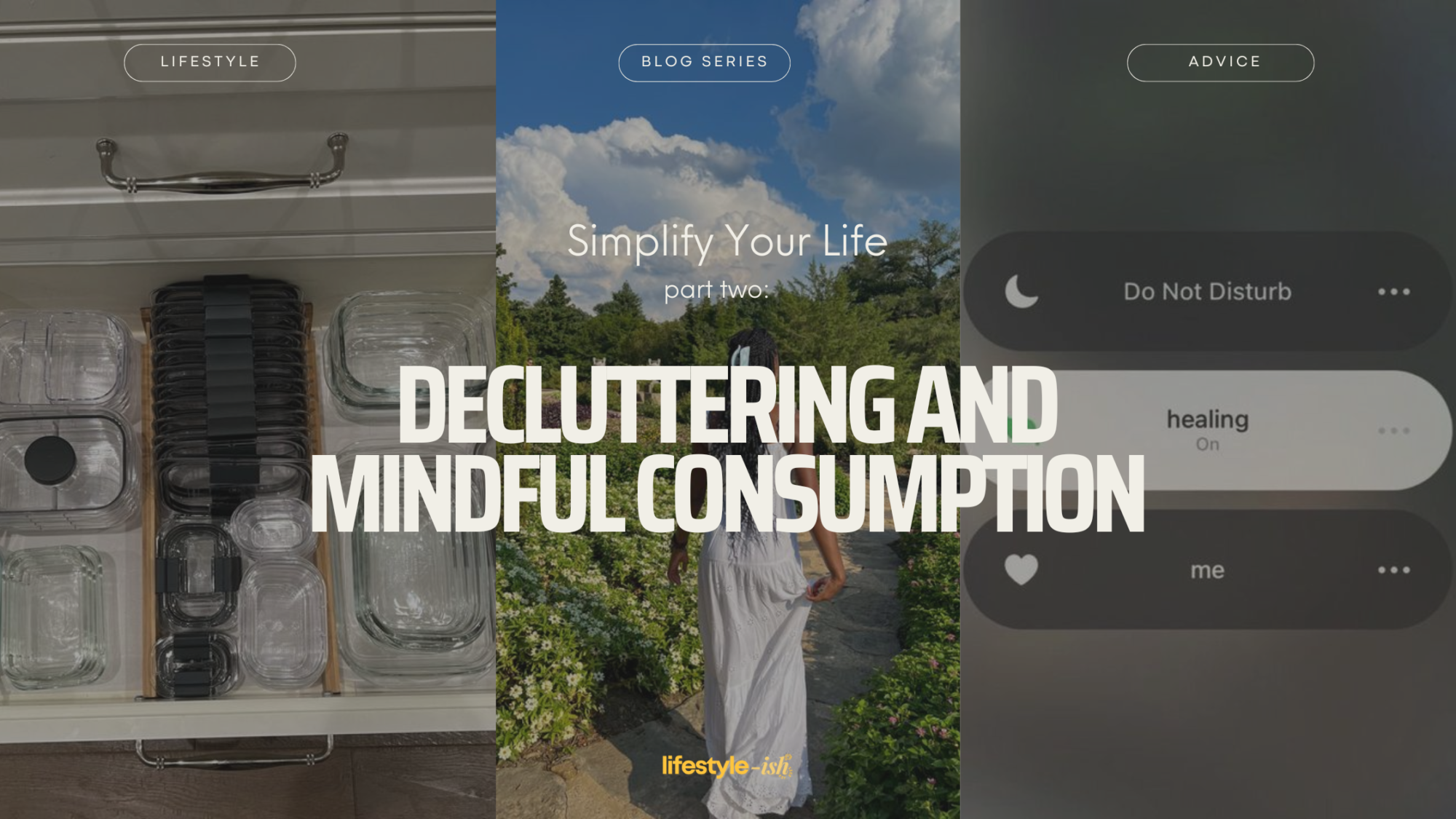Welcome back to our series on minimalist living! Today, we’re diving into the second instalment: Decluttering and Mindful Consumption.
Let’s talk about why decluttering matters 💬
You might be wondering, why bother decluttering? Well, it’s about more than just tidying up your physical space—it’s about creating clarity, space, and freedom in your life. By letting go of the things that no longer serve you, you make room for what truly matters. When our physical space is cluttered, it can lead to feelings of stress, anxiety, and let’s not forget about that horrible feeling of being overwhelmed. Decluttering our surroundings is one of the first steps we can take to introduce a sense of calmness and autonomy into our lives.
Where to start with decluttering 🤔
Feeling overwhelmed by the thought of decluttering your entire life? Don’t worry, you’re not alone. Start small by focusing on one area at a time. Whether it’s your wardrobe, your kitchen, or your digital devices, choose one area to declutter and commit to making progress each day. It’s also worth mentioning that it’s useful to make a list of the areas you want to declutter in your life, that way you’re able to make concrete mini plans for each of them instead of trying to declutter on a whim.
When it comes to starting that decluttering process, it’s worth asking yourself some practical questions. Here are some ideas of questions to start off with:
💌 Does this item bring me joy or serve a practical purpose?
💌 Have I used or needed this item in the past year?
💌 Am I holding onto this out of guilt or obligation?
💌 Can I donate or repurpose this item to someone who may need it more?
Now that we’ve talked about decluttering, it’s time to move on to the next important phase of your journey to minimalist living: ✨Mindful Consumption✨
Practicing mindful consumption is essential for maintaining a minimalist lifestyle. It essentially means being intentional about what you bring into your life, and it can be anything: material possessions, media consumption, even your commitments.
Again, with this in mind comes even more practical questions to ask yourself:
💭 Do I truly need this item or am I buying it out of impulse or habit?
💭 How will this purchase align with my values and priorities?
💭 Can I find a more sustainable or ethical alternative?
Time for me to be honest with you: I’ve found being mindful with what I consume to be the most toughest part of this journey, but it’s well needed. By slowing down and being intentional about our consumption habits, we can reduce waste, save money, and cultivate a deeper appreciation for the things we already have.
Mindful consumption can also include cultivating a healthy relationship with food and fitness. Let’s just pause for a moment and a quick look at our society today – we’re so accustomed to seeing fad diets, quick-fix solutions, and external pressures to look a certain way and sometimes, with or without realising it, it can have a negative toll on how we perceive ourselves. By approaching health and fitness from a place of self-love and acceptance, rather than punishment or deprivation, we can create sustainable habits that support our long-term health and happiness.
Decluttering and mindful consumption are not one-time tasks—they’re ongoing practices that require mindfulness and intentionality. Remember, the goal of minimalist living is not perfection but progress. By taking small steps towards simplifying your life, you’ll create space for more joy, fulfilment, and authenticity.
Stay tuned for the next week’s instalment of our series, where we’ll dive deeper into practical tips for decluttering and mindful consumption. Until then, may your days be filled with simplicity, intentionality, and joy🚀
Bisous bisous!
Elda xx
